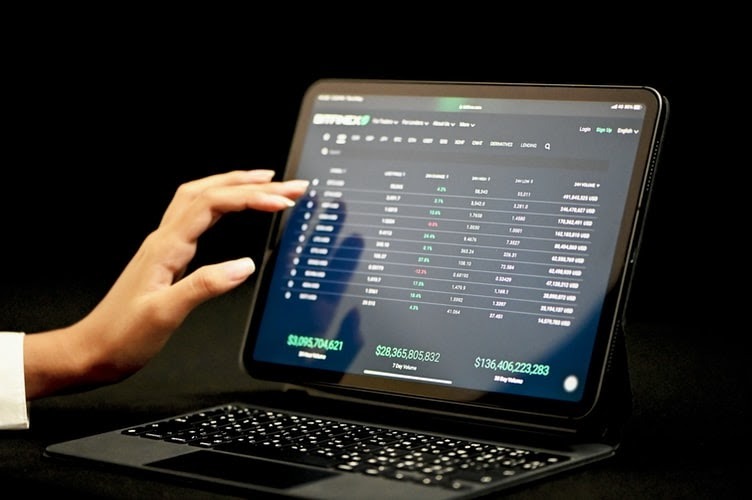
What is Arbitrage Cryptocurrency Trading, And How Does it Function?
The cryptocurrency marketplace is a battlefield. From volatile prices to the lingering probability of fraud and the uncertainties that come with investing in speculation, it takes skills and guts not to fall victim to emotional trading. While most investors dip in, take a gamble, and then leave their assets to grow, some have taken to full-time crypto trading. Unlike stocks and bonds, which tend to hold more stable value, cryptocurrencies are extremely liquid and move quickly, so the trading strategies that apply are also naturally different.
Of the most popular short-term crypto trading strategies, arbitrage trading is favoured by risk-takers and fast thinkers (and clickers). Here’s everything you need to know about cryptocurrency arbitrage trading and whether or not it still works in today’s borderline mainstream market.
What is Arbitrage Trading?
Arbitrage trading takes the primary rule in any investment market: buy low and sell high. Except traders elevate this concept to a whole new level, essentially taking advantage of loopholes in the marketplace. This trading strategy has been around since the early days of stocks, bonds, and ForEx. Due to the diversity of the markets, investors would purchase an asset from one source—where it’s valued the lowest—and resell it in another platform where it costs significantly more.
However, as the market caught on to this strategy, it has become near-impossible to take advantage of an arbitrage opportunity, as others would likely beat you into it. What stands is that arbitrage is an important aspect in any market, as it drives movement, contributing to stabilising prices across various exchanges.
What is Crypto Arbitrage?

If you’ve purchased cryptocurrency before, then you may be aware that there are thousands of exchanges available online. And these exchanges are in different sizes, operate in different timezones, and cater to different markets. As such, there tends to be a discrepancy in the price of coins between these platforms.
For instance, Kraken might have LUNA at $15.05, while Binance might have it listed at $15.10. Arbitrage traders latch onto this price difference and use it to their interest by purchasing LUNA from Kraken before immediately reselling it on Binance for an instant profit. A cryptocurrency arbitrage works—as opposed to traditional investments—due to the liquidity of the market. The prices move so quickly that micro-changes allow you to turn in a profit, as long as you’re fast enough to close a buy-and-sell trade simultaneously. In that regard, this action must be done instantaneously, as the market changes by the second, making arbitrage trading an adrenaline-filled plan of action.
Moreover, arbitrage trading usually requires a considerable investment to see major profits. Banking on cents simply isn’t worthwhile—investors typically need to pour at least a few thousand dollars of coins on each cycle.
There are workarounds to the fiat barrier-of-entry, like choosing to buy from US exchanges and then reselling in Asian exchanges. Bitcoin is valued more highly in the Japanese and Korean market, bringing about the “kimchi premium.” In South Korean exchanges, BTC can cost up to 20% more than its international value. But as with other nuances of this trading procedure, you need the right strategy, timing, and foresight to score big wins.
Main Types of Crypto Arbitrage
Arbitrage trading is an overarching strategy—there are various ways you can go about it based on the current market, the resources available to you, and how you prefer to close trades. Below are three common methods, but know that there are plenty more widely-used approaches. Likewise, creating your own derivative is entirely possible!
Basic Cross-Market Arbitrage
The simplest form of arbitrage trading involves buying low from one platform and selling for higher on another. It’s an “instant profit” scheme that allows you to take advantage of the market’s volatility and the discrepancy between larger and smaller exchanges. A downside to this strategy is that the buying, selling, and withdrawal process incurs fees—you need to be highly calculative about how much you put in to generate actual profit. It’s also harder to cheese your way through this method when dealing with smaller cryptocurrencies, where liquidity issues may make it difficult to close trades immediately.
As such, the basic arbitrage market is highly concentrated on popular coins, like BTC, ETH, LTC currency, and other top-performing altcoins. Moreover, you need to finesse the reselling strategy—clicking a few seconds too late can run you at the risk of losing money because of split-second volatility.
Triangular Arbitrage (Fiat-Crypto)
This method is extremely popular in ForEx, but it translates well into the cryptocurrency market if you have access to international exchanges. To start, you need to choose two fiat-crypto pairs, such as USD-ADA and AUD-ADA. Suppose you purchase ADA in a US exchange for $2 (USD). You can then resell it in an Australian exchange with a higher rate at $2.10 (USD) each. That’s a $0.10 profit per ADA.
The triangular arbitrage differs from the basic strategy because it takes advantage of more liquid regional markets where the same cryptocurrency may go for 10-20% more. It offers an opportunity to resell for higher, but only if you have legal access to foreign exchanges. You’ll also need to watch three different currencies to avoid falling short: two fiat and one crypto.
Triangular Arbitrage (Crypto)
Another variation of the triangular arbitrage involves only cryptocurrency. The biggest advantage of this approach is that you don’t have to leave the crypto economy and can close all trades within the same exchange, so it’s quicker and very convenient—but it requires you to make lightning-fast calculations. You need to choose three cryptocurrency pairs to initiate this strategy. For example, BTC-ETH, ETH-BCH, and BCH-BTC. Then you need to strategically search for fiat misprices between the three conversions, which occurs as three separate markets experiencing different levels of liquidity are involved. Your 0.005 BTC may be worth approximately $200. But after converting the same to 0.065 ETH value, the denomination may now be worth $217, and likewise a different price when converted to BCH.
Can You Profit From Crypto Arbitrage?

An arbitrage trading strategy is most profitable when the market is extremely active, making it ideal to use against the volatile cryptocurrency landscape. Investors take advantage of bull markets as a way to gain leverage through multi-platform trading. But while this strategy still works in today’s crypto market, it’s becoming harder to manually close instant trades.
Most have resorted to taking advantage of arbitrage with the help of crypto trading bots, which can be programmed to buy and sell across predetermined exchanges under specific parameters. It’s worth getting into while the opportunity still presents itself—but know that it’s not a forever game plan if you intend to ride on the crypto wave for years to come.
Is Cryptocurrency Arbitrage Legal?
The differences in a coin’s value across various exchanges or conversions is natural, especially as the market is still divided across local and regional barriers. Arbitrage trading helps level the prices so that there’s no longer a massive difference between a small exchange and a large exchange’s rates, making it fair game for investors to buy and sell on any platform. Ultimately, arbitrage trading is legal—as long as you aren’t breaching laws to access exchanges that aren’t normally available to you.
Closing Thoughts
Cryptocurrency arbitrage trading is not for the faint of heart and requires ample strategy and thinking to succeed, but it’s an ideal approach for risk-takers looking to make short-term gains in a bullish market. While its relevance diminishes over time, it’s still worth looking into for immediate trades.





Leave a Reply
Add comment ×